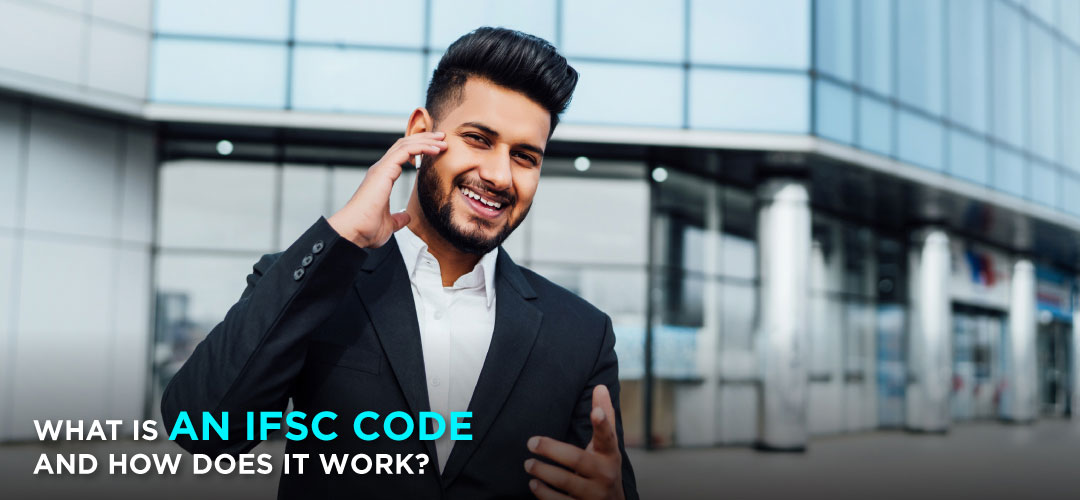Bank Code
What is an IFSC code and how does it work?
TABLE OF CONTENT
An IFSC code is a unique code assigned by the Reserve Bank of India (RBI) to each bank branch that facilitates electronic fund transfers within India. It consists of 11 alphanumeric characters and is used to identify the bank and branch where the beneficiary holds their account. In this essay, we will explore what an IFSC code is, how it works, and how you can find it using an account number or IFSC code search.

What is an IFSC code and how does it work?
What is an IFSC code?
An IFSC code is made up of both alphabets and numbers, with the first four characters representing the bank's name, the fifth character always being zero, and the last six characters representing the branch code. For example, the IFSC code for the State Bank of India (SBI) branch in Connaught Place, New Delhi, is SBIN0000606. Here, "SBIN" represents the bank's name, "0" is the fifth character, and "000606" represents the branch code.
The importance of IFSC code for electronic fund transfers
The importance of an IFSC code for electronic fund transfers cannot be overstated. Without an IFSC code, it would be nearly impossible to facilitate electronic fund transfers within India. Here are some reasons why an IFSC code is so critical for electronic fund transfers:
Identification of bank and branch: An IFSC code helps to identify the bank and branch where the beneficiary holds their account. This information is crucial to ensure that the money is transferred to the correct account.
Verification of transaction details: When a transaction request is received by the beneficiary's bank, the IFSC code is used to verify the details of the transaction, such as the amount, sender's account number, and beneficiary's account number. This helps to prevent errors and fraud.
Speed and efficiency: Electronic fund transfers facilitated by IFSC codes are usually faster and more efficient than traditional methods such as cheques or cash transfers. With an IFSC code, the money can be transferred from one account to another almost instantly.
Nationwide accessibility: IFSC codes are used by all banks and branches that facilitate electronic fund transfers in India . This makes it easy for people to transfer money to anyone, anywhere in the country.
How does an IFSC code work?
When you initiate an electronic fund transfer, the sender's bank will use the IFSC code to identify the beneficiary's bank and the specific branch where the beneficiary holds their account. Once the beneficiary's bank receives the transaction request, it uses the IFSC code to verify the details of the transaction and to credit the money to the correct account. Therefore, an accurate and up-to-date IFSC code is essential for a successful electronic fund transfer.
How to find an IFSC code
There are several ways to find an IFSC code. One way is to check your bank account statement or passbook, where the code is usually printed at the top of the statement or the first page of the passbook. You can also find the IFSC code on your bank's website by searching for the specific branch. Another way to find an IFSC code is to use an IFSC code search tool, which is available on many websites and apps.
In conclusion, an IFSC code plays a critical role in facilitating electronic fund transfers within India. It helps to identify the bank branch where the beneficiary holds their account and ensures that the money is transferred to the correct account. By using an IFSC code search tool or checking your account statement, you can easily find the code you need to make an electronic fund transfer. It is important to ensure that the IFSC code is accurate and up-to-date to ensure a smooth transaction. So, the next time you need to transfer money electronically , make sure you have the correct IFSC code handy to ensure a successful transaction.
Related Articles:
- First Bank Transfer Code: All Things You Need to Know
- The Difference Between Bank Sorting Code and Swift Code
- List of Country Currency Codes
- A Comprehensive Guide on How to Activate and Use the Transfer Code for Access Bank
- Is Swift Code Same as Routing Number?
- What Is a Transit Code and How to Find It
- National Bank of Egypt Swift Code: Everything You Need to Know
- What Is MICR Code in Bank Account?
- How to Find My BIC Code
- Bank Sort Code Finder: How Necessary in Checking Transactions
- What Is Swift Code? How to Check Swift Code and How Do I Find Out My Swift Code
- What Are Bank Swift Codes?
- Comprehensive Understanding of SIC Code Look-Up
- Everything You Need to Know About Bank Routing Codes
- What Is an IFSC Code and How Does It Work?
- What Is the Swift Code of Bank or BIC Code? How Does It Work?
- Is a Swift Code the Same as a BIC Code?
- The Ultimate Guide to Understanding HTS Codes
- The Difference Between Bank Sorting Code and Swift Code
- What Is BIC Code of Bank? Definition from DNBC Financial Group
- What Does Swift Code Represent?
- HSN Code List: What Is It and How to Find It
Relevant Content



 DNBC Financial Group
DNBC Financial Group 






 Processing...
Processing...